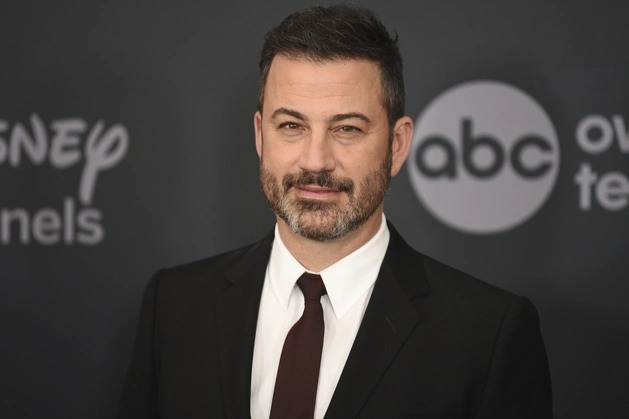The Fall of Late-Night: How Jimmy Kimmel’s Suspension Ignited a Cultural Firestorm
In a move that stunned America, Jimmy Kimmel Live! went off the air indefinitely, triggering a chain reaction that rippled through the worlds of politics, media, and celebrity culture. What was meant to be just another night of comedy became a seismic cultural event, exposing the precarious intersection of humor, tragedy, and ideology in modern America.
It all began in the aftermath of the tragic September 10 shooting that claimed the life of conservative activist Charlie Kirk. Kimmel, never shy about blending comedy with moral commentary, addressed the incident in his monologue, critiquing attempts to politicize the narrative around the alleged perpetrator, Tyler Robinson. While Kimmel sought to provoke reflection, his words landed like sparks on dry timber. Critics accused him of crossing a line, turning a real-life tragedy into political theater.
The network’s response was swift. By Wednesday, ABC announced that Kimmel’s show would be pulled “indefinitely.” Affiliates across the country followed suit. Late-night television, once a staple of American culture, suddenly appeared fragile, at the mercy of both public outrage and political scrutiny.
Into this volatile mix stepped Elon Musk, a figure whose influence now extends far beyond technology. Musk, mourning the loss of Charlie Kirk earlier in the month and praising his bravery, seized the moment. With millions watching, he tweeted: “Human decency is coming back. Thank God,” echoing an old jab from Kirk: “Jimmy Kimmel isn’t funny.” For Musk, the suspension wasn’t just about television ratings—it was a symbolic victory over what he calls “Hollywood arrogance,” a public reckoning for the elite cultural class.
The reaction on social media was immediate and polarized. Supporters hailed Musk’s post as vindication, a moment when accountability met celebrity power. Detractors argued that Musk was politicizing tragedy for personal and ideological gain. Meanwhile, hashtags like #KimmelOffAir and #JusticeForKirk exploded across platforms, dominating conversations from college campuses to office chat rooms.
Former President Donald Trump also weighed in, publicly criticizing Kimmel while calling for broader cancellations in the late-night realm. With Stephen Colbert gone and Jimmy Fallon under scrutiny, the genre that once defined American satire faces unprecedented uncertainty. It’s no longer merely about jokes; late-night has become a proxy battlefield for ideological warfare, each punchline dissected, each gag politicized.
For Kimmel, the indefinite suspension marks a critical turning point. It’s a moment where comedy, culture, and politics collide with explosive force. For Musk and his millions of followers, it’s a symbolic triumph—a warning shot to Hollywood that public sentiment, amplified by social media, can no longer be ignored.
As the nation watches this drama unfold, one question lingers: will late-night television survive in a post-viral, hyper-partisan America, or has the era of the monologue ended, replaced by a battlefield of tweets, outrage, and cultural reckonings? For now, the stage is empty, the lights dimmed, and America waits, polarized, hungry for the next act.
